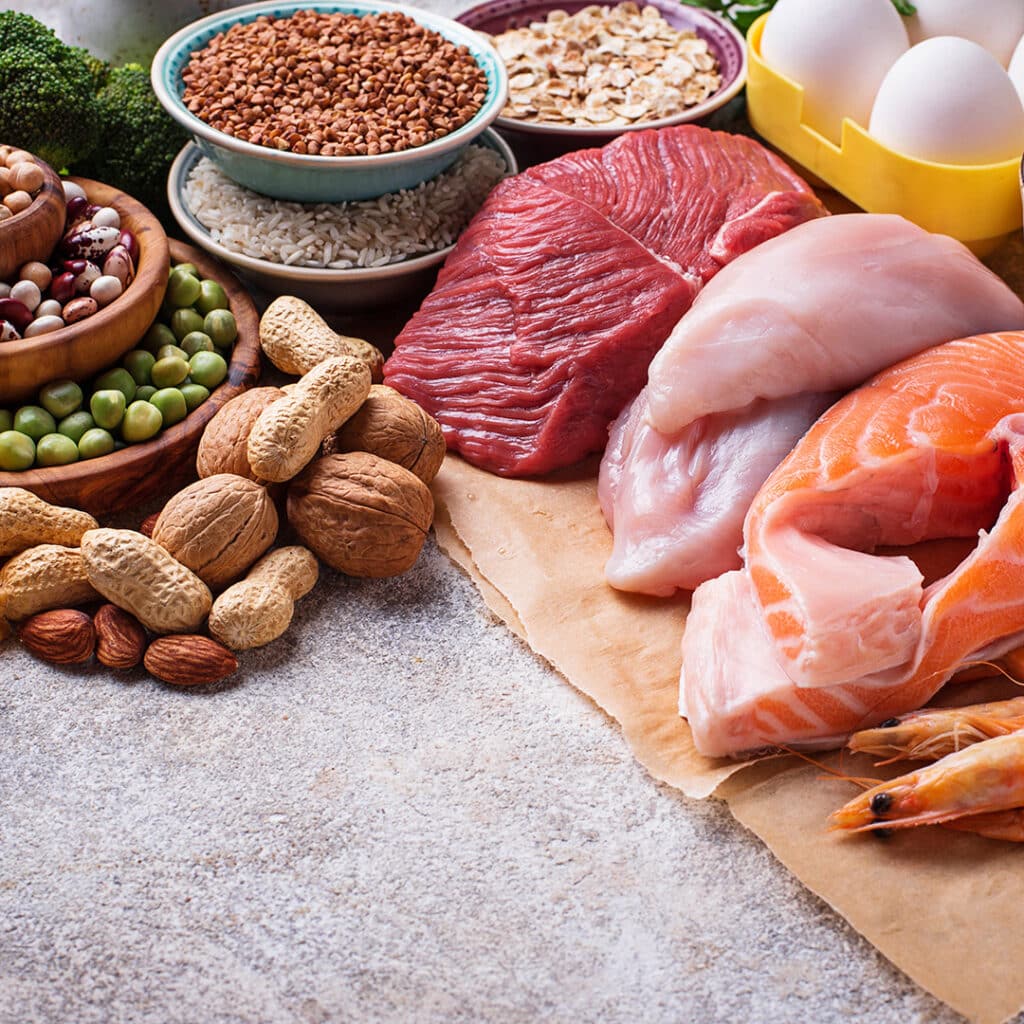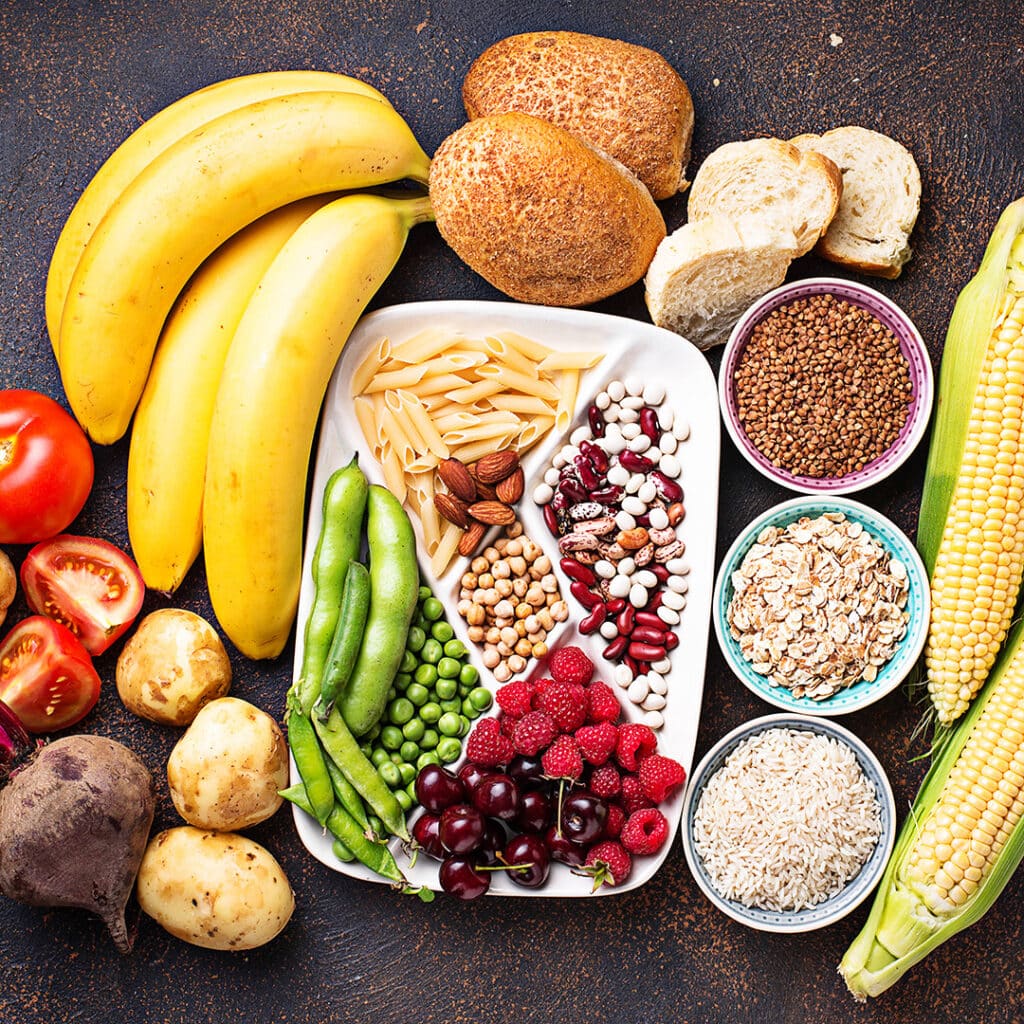What are macros: Macronutrients - The Basic Building Blocks Of Your Diet

Macronutrients, or short: macros, are proteins, carbohydrates and fats. They are used in many ways to help with various bodily functions. In this post you will learn more about macros, what they are, what they are used for, and which foods should you be eating to get them. It will also talk about how Goliaz provides you with all the info needed to start tracking macros and calories.
We all know that training is only a part of the equation when we want to reach our weight loss goals or build up lean muscle mass. Let’s see why it could be interesting for you to count macros.
Protein

The term protein was derived from the Greek word proton for “the first, the most important”. This is because protein is very important for our body. Since it has no protein store, our body cells must be regularly supplied with protein. Proteins mainly provide material that the body needs to build muscle mass, organs and blood, but also for enzymes and hormones, for example for immune defence.
Protein also plays an important role as a source of energy, especially when there is a shortage of other energy sources such as carbohydrates. If you eat enough carbohydrates, proteins are not “wasted” for energy.
Protein-rich food includes meat, dairy, eggs, nuts, legumes and seeds.
Carbohydrates
Carbohydrates have the task of supplying us with energy that is available relatively quickly so that processes such as thinking or movement run smoothly.
The body stores carbohydrates in the form of glycogen in the muscles and liver, where they fulfil their function “on demand”. In contrast to the fat depots, these stores are limited. Carbohydrates do not play a significant or direct role in building muscle; protein is responsible for this.
Complex carbohydrates, i.e. starch- and fibre-rich foods such as wholegrain products, vegetables and potatoes, are the main contributors to a balanced and healthy diet. They make you feel full faster and longer due to their water-binding capacity. Such products also provide vitamins and minerals at the same time, while single and double sugars in the form of household sugar, sugary soft drinks or sweets mainly have many calories.

Fats

Although fat can be replaced by carbohydrates as an energy source, we cannot live entirely without fat. Because it provides the fat-soluble vitamins A, D, E and K and important fatty acids. In addition, fats are carriers of flavour and aroma substances and are thus partly responsible for the taste of many dishes.
Our organism can produce sufficient quantities of saturated and monounsaturated fatty acids. They are mainly found in animal foods such as butter, cream, lard, beef tallow as well as meat, sausages and cheese. Some vegetable fats such as coconut and palm kernel fat also contain a lot of saturated fat.
The high-quality, polyunsaturated fatty acids, often called “healthy fats” must be ingested with food. Important representatives are linoleic acid and linolenic acid. A high content of linolenic acid is found in herring and linseed oil. Linoleic acid is mainly found in vegetable oils.
The perfect ratio
To maintain a healthy level of protein, you need approximately 0.8 grams per kilogram of body weight per day. However, if your goal is to improve your body composition or muscle gain, the American College of Sports Medicine recommends that adults consume 1.2-1.7 grams of protein per kilogram of body weight per day.
For carbs and fat, it comes more down to your own preferences, as studies have shown that when looking strictly at the loss of body fat, Low-Carb diets and Low-Fat Diets show the same results when eating the same amount of calories and proteins.
Why you should start to track macros
If you’re looking to assess your nutrition and find a healthy diet, tracking your macros is a great place to start. Often, we don’t eat enough proteins or other essential nutrients your body needs, and counting macros can help ensure we’re getting a balanced mix. By using a calorie tracker and weighing your food, you can accurately measure your intake and make adjustments as needed. This approach can also be helpful if you’re trying to gain or lose weight or maintain a specific body composition.
Ultimately, tracking your macros can help give you a better understanding of what you’re putting into your body and make it easier to achieve your nutritional goals.
Nutrition with Goliaz - no need to calculate macros

In the Goliaz app, you can choose during the setup of each Training Plan week which diet you want to follow. You can choose between:
- Protein Plus
- High Carb Low Fat
- Low Carb High Fat
- Balanced
You do not need to calculate your macros or daily calories, the app automatically calculates your total calories and the matching macro ratio. Each time you finish a workout in the app, our calculator adapts your total daily number of calories, as well as how many grams of the three macronutrients you should eat. No need to calculate the calories or macros to reach, all you have to do is using the nutrition info in your training plan to set up a calorie tracker app of your choice.
Conclusion
In conclusion, understanding macronutrients is crucial to achieving your nutrition goals, whether you want to lose weight, build muscle, or simply maintain a healthy diet. Tracking your macros and calories can be a helpful tool, but it can also be time-consuming and tedious. Fortunately, with the Goliaz app, you can let the app calculate your macros and calories for you, making it easy to focus on your training and nutrition goals without the hassle of manual calculations. Start your journey towards a healthier lifestyle with Goliaz today.
